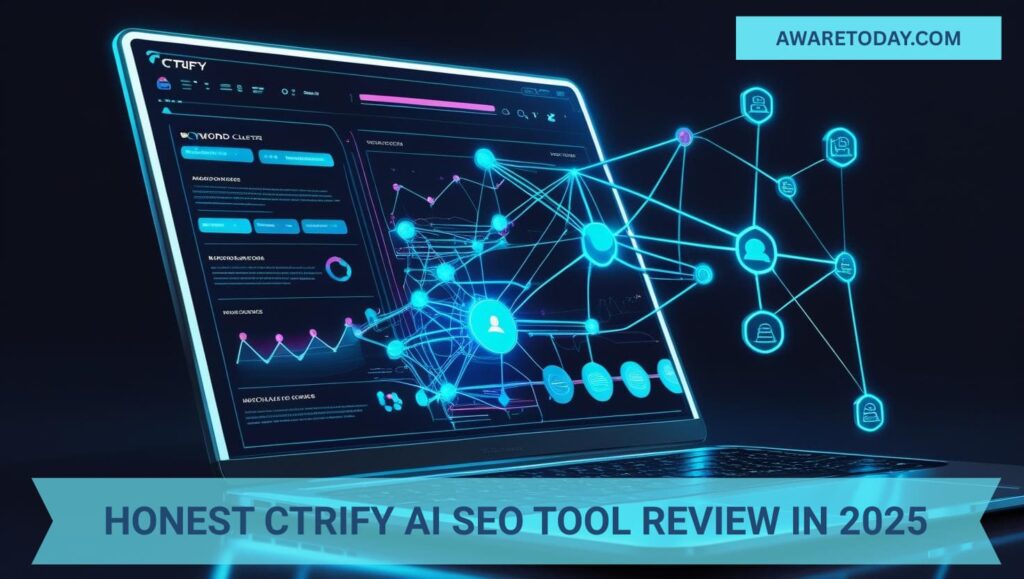Why Use AI for Smarter Keyword Research?
Why leverage AI to perform keyword research? Because the old way is broken. The new way is faster and better matches with how people search today.
Traditional keyword research relies mainly on average search volume and outdated historical data. It often lacks depth in understanding search intent. This ultimately disrupts the perceived value of the keywords. In 2025, searches are very different. People don’t type keywords into Google’s search anymore. They ask complex questions in conversational format with tools like ChatGPT and Perplexity.
With this shift, AI has completely changed the way we approach keyword research. AI-boosted keyword research expands much farther than metrics of volume. It decodes how people express their thoughts in language patterns. It also identifies trends before they peak. It doesn’t simply give you keywords but the knowledge to develop a strategy.
Let’s unpack why this is important and how your business can leverage it.
The Limits of Traditional Keyword Research
For many SEO professionals, the process for keyword research was pretty standard. A seed keyword was entered into Google Keyword Planner or Ubersuggest . The results were sorted by search volume. While this seemed to work in a more static search environment, today’s search is much more dynamic. It is also overwhelmingly complex.
Traditional keyword research is manual and slow. It is often outdated by the time the content goes live. Oftentimes, it is unclear whether the term should be used for a product page, blog post or FAQ page. Volume numbers alone do not show intent. Most tools do a poor job capturing the conversational and long-tail phrases.
How AI Reimagines Keyword Research
AI completely changes the process by using Natural Language Processing (NLP) and ML models. These tools also recognize linguistic context. AI tools like Surfer SEO, SEMrush AI, and Athena analyze multiple search signals at once. They go beyond simply filtering raw keywords through databases and APIs.
The models do not return just phrases, instead they return semantic clusters.. AI will also ascertain search intent. Is the user looking to learn something (informational)? Is the user looking to compare options (navigational)? Or is the user looking to purchase (transactional)? This will inform marketers on the types of content that should be aligned to the user’s demand.
Even more impressively, AI anticipates the next big thing. Instead of waiting for a term to hit a certain search volume, AI can identify the rising trends. It is identified by reading Reddit, Quora, Twitter/X and YouTube transcripts. This gives marketers an early glimpse into high-impact topics queued to break.
AI tools can consider SERP intent. They check what is ranking and why. They also analyze AI-powered answers in Google SGE and ChatGPT. This makes teams prioritize efforts.
The Benefits of AI for Keyword Intelligence
AI’s number one benefit is speed. Processes that took hours like, pulling data, now take minutes. Tools like ChatGPT plugins or Surfer’s keyword clusters return not just related keywords. These tools outline content structures, key questions, and suggested metadata.
But beyond efficiency, AI delivers clarity. Traditional tools might show a list of keywords related to “solar panels,” but AI models will return different themes. Themes like “off-grid living,” “state rebates,” and “energy ROI”. All these are relevant and rich with content potential. These insights are far more aligned with what a human reader is trying to solve.
AI tools also adjust in real time. As Google’s algorithms shift, traditional rankings can fluctuate wildly. AI helps marketers adjust quickly and prevent traffic losses.
AI helps marketers because it enables them to write for humans not algorithms. It reveals the meaning behind what users say and not just what they type. This leads to greater relevance, engagement and higher chance of conversion.
Tools That Lead the Way in 2025
There are two primary groups within the AI keyword space in 2025. The first group includes platforms that have AI capabilities in their data workflow. The groups are Ahrefs, SEMrush, Moz, and BrightEdge. Each has large language models to improve the quality and synthesis of their data. They’ve also created unique AI features such as intent labels.
The second group is made up of AI-native disruptors. They include companies such as Athena, Scrunch, and KeywordInsights.ai. These companies have built their tools to prioritize AI visibility over Google ranking. They measure your brand and how often it appears in chatbot responses. This allows you to understand the definition of modern visibility better.
For many teams, the smartest approach is to use both traditional tools and AI together. Traditional tools track performance. AI aids in ideation, planning, and trend spotting
How to Build a Smarter Keyword Workflow with AI
A productive AI keyword strategy starts with clear objectives. Are you trying to drive traffic, convert leads, or build thought leadership? Your goals determine what type of keywords you will want to focus on. It also determines what type of content you will want to create.
When you have defined your goals, you will want to provide first-party data for your AI tools. You will feed them Google Analytics reports, CRM exports, or Search Console query logs. AI can compare and contrast user behavior on your site with search trends on the web.
Next, use AI clustering to create topical content hubs. Then, link it to articles about subject lines, automation, segmentation, and deliverability. AI tools like MarketMuse and Topic work beautifully for this.
Now that your framework is set, use AI to generate content briefs that align with your key headings. What are the most relevant FAQs and metadata for each content section based on the target intent? This makes your team spend their time writing valuable human content.
Lastly, you can have your AI tool trail trends every week. You’ll be notified if there are new keywords that trend. If other keywords disappear from the limelight, you will be the first to know. This enables rapid updates and adjustments to your content calendar.
Caution: Use AI Strategically
Algorithms can greatly improve your keyword research, but they also introduce some risk. For example, there may be times when an AI will fabricate data. This means it will develop hallucinated search volumes or fabricated trends. This is why it is important to use AI to generate insights and depth of data.
It is also possible to replicate “thin” content or overly-redundant content through an over reliance on automation. Google’s Helpful Content System penalizes AI-generated pages that do not offer authentic or original insight of experience. Therefore, you will need to determine the relationship that will exist between the machine assistance and your authoritative voice.
Security is also an important consideration. Companies may have policies or compliance issues. Ensure these tools meet enterprise-level security standards. Also check if they offer options for on-prem development. This is a critical compliance requirement.
Case Study: From Reactive to Predictive SEO
Consider a SaaS company in the cybersecurity space. Previously, their team spent weeks researching and producing content around different terms. These terms include “firewall protection” and “VPN solutions.” With AI tools like Athena, they discovered a rising trend around “zero trust architecture” and “identity-first security models.”
Within a week, they built a content cluster around these keywords. This included explainers, case studies, and comparison pages. Two months later, their “Beginner’s Guide to Zero Trust” was featured in Google SGE. It was also cited by ChatGPT in live conversations. The result? A 38% lift in organic sign-ups and a fivefold increase in demo requests. This result was derived from predicting the search curve before their competitors.
Conclusion
In a world of evolving search each day, AI isn’t a choice, it’s a requirement. AI enables faster ideation, a better understanding of intent and predictive insights. This changes keyword research into a strategy rather than a routine task. When used properly, AI allows marketers to spend more time on what is important. It connects them with people and not algorithms.
At Awaretoday.com , we believe in using tech with purpose. So, start small; run one AI keyword report, build a topic cluster, publish early and track the results. You’ll see what’s possible when creativity and intelligence work together.









